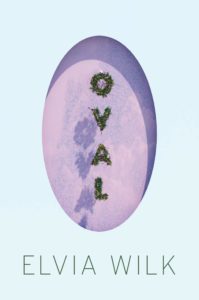Once, for a silly, foolish year, I worked as a copywriter at a Portland startup, an open-concept playground where ping-pong tables outnumbered actual desks, kombucha poured, Niagara-like, from the taps, and where I was first acquainted with the phrase brand authenticity. It is no longer enough, the philosophy states, for companies to merely deliver a product. They should also follow certain values — innovation, empathy, accountability — which ring true in every action. They should be trustworthy and transparent. They should stand for something.
This idea has permeated the market far and wide. Consider Colin Kaepernick as the face of Nike, Gillette taking a stand against toxic masculinity, the Moon Pie Twitter account doing, uh, whatever this is. The problem is that the very concept of brand authenticity can only be, in a capitalist society, inauthentic. A company’s actions don’t come down to values, they come down to money, and anyone who says otherwise is selling something. If more brands are espousing liberal talking points, it’s because it’s lucrative: as Zoë Beery writes in The Baffler, liberals are more likely than conservatives to buy it (in more ways than one) when brands reflect their social beliefs. It’s essentially a corporate spin on fake news, blurring the line between artifice and reality so effectively it’s almost impossible to tell what these companies actually believe, and what is just an ad.
It’s also a devilishly hard strategy to criticize without coming off like a grumpy old luddite (seriously, who didn’t cheer at Patagonia suing the Trump Administration?), which has a lot to do with why I adored Oval, Elvia Wilk’s gleefully acerbic satire of class, greenwashing, disruption culture, and yes, “authenticity.” A searing depiction of big tech’s habit of stealing our souls only to sell them back at 200% list price, Oval is kind of like The Jungle for the age of late capitalism, if The Jungle gave fewer fucks and was blessed with an A+ sense of irony. Anyone who’s ever been creeped out by Google’s targeted ads or Siri’s manufactured friendliness will find much to love in Wilk’s droll skepticism, let alone anyone who’s witnessed the toxic absurdity of tech culture firsthand. I cackled through every page.
Oval is set approximately five minutes from now, in a fully corporatized Berlin that some might call dystopian and others might simply call 2019. In this withering vision of the future (?), everything has become a replica of itself. A shady mega-corporation named Finster — a think tank-cum-tech company-cum-global supervillain — has bought up whole blocks of the city’s eighteenth-century buildings, only to demolish them and build them anew, “down to the fixtures,” in the ostensible (and rent-jacking) name of eco-friendliness. The city’s artists have all been hoovered up by NGOs and startups as corporate consultants (“brand ambassadors”) to keep the company cultures “hip and fresh” and inspire their employees “to make The World a better place.” Meanwhile, the weather has gone berserk. The seasons have fractured, “first into months and then into weeks and then into days and now maybe into minutes.” Even the clouds look fake, too smooth to be real, “like faded copies of one another.” Some Berliners suspect a conspiracy: climate experiments on a mass scale, weaponized weather. Others, stumbling home from their third night of clubbing, think they may just be stoned.
Our guide to this questionably brave new world is a Finster scientist named Anja, who lives with her boyfriend in a zero-waste eco-village atop an artificial mountain — another Finster experiment. But all is not well in eco-paradise. The all-organic house appears to be . . . actively rebelling? Sewage has backed up below the foundation. The walls, apropos of nothing, have begun to dissolve. Then there’s the matter of the surveillance cameras mounted throughout the rooms, silently observing and reporting to . . . someone. Things only get fishier when Anja, on the verge of a scientific breakthrough at work, abruptly finds herself reassigned to the RANDI division, a secretive department of “speculative speculations” barricaded behind a wall of non-disclosure agreements.
Anja, however, has bigger problems to worry about than a potential coverup or invasion of privacy. There’s also the titular Oval — or “O,” as it comes to be known — a new drug that claims to increase the user’s generosity, and developed in secret by none other than Anja’s boyfriend, Louis. Louis envisions O as the great solution to Berlin’s rampant inequality. Instead of relying on philanthropy or political activism to wrest change, Oval provides a massive dopamine rush every time the user performs an act of generosity, whether that’s dropping change in a beggar’s cup, buying a round of drinks for friends, or taking in a refugee. With enough people on O, Louis hopes to transform Berlin into a hub of charitable giving, with the city’s residents literally high on their own generosity. “Capitalism,” Louis explains knowingly. “It’s in the brain.”
Anja, aghast, observes that doing good because you get a reward and doing good because it’s the right thing to do are not remotely similar. (“So you take it and it turns off your . . . capitalism?” she asks, incredulously.) But Louis, who has teamed up with Finster to produce the drug en masse, waves away her concerns. It accomplishes the same thing, doesn’t it? Like finding your way around a city with Google Maps or throwing an Instagram filter on a mountain vista, Oval is a means to an end, a shortcut through the time-consuming process of caring. Empathy: there’s an app for that.
This is Oval’s central joke, and also its most cutting observation: in our current age of convenience culture and mass gentrification, what does it take to live an ethical life? Protesting? Buying organic? Writing an angry Facebook post? The question certainly seems to be on a lot of minds these days. Both Russian Doll and The Good Place are explicitly concerned with the conundrum of how to be a good person in a system that renders such behavior almost impossible, arguing that genuine human connection is our saving grace above all. Hopepunk, a rallying cry against cynicism that (naturally) drowned in a wave of internet mockery, advocated for stories that build a “better, kinder world” through “caring about each other as hard as we possibly can.” And writers from Jia Tolentino to Jenny Odell have promoted the benefits of unplugging from our overabundance of technology. (Of course, tech behemoths like Google and Uber have argued that we should let them fix the climate crisis and social inequality, because “it takes capitalism to solve capitalism” is very 2019.)
There’s certainly nothing wrong with saying we should all be nicer to each other, but Oval just isn’t buying it. The novel is a trap: in a society where literally everything — history, art, environmental justice — has been co-opted and commodified, why should we expect relationships to escape unscathed? Love cannot grow from plastic any more than flowers can. Oval, the drug, may be the logical conclusion of such a premise — its promises of Instant Connection™ sounding like Tinder’s deranged, dystopian cousin — but Wilk’s purest representation of this idea is Louis himself. A connoisseur of the little social interactions that keep “consensus society running smoothly,” Louis writes witty emails, charms party guests effortlessly, and looks good no matter what he wears. But it’s all facade. When his mother dies at the beginning of the book, he refuses to let any trace of emotion cloud his appearance. His plan to eliminate inequality through chemically-induced empathy seems more about it being a cool idea than any empathy of his own. (Neat trick, that.) And his relationship with Anja is little more than a curated routine of mundane quirks and idiosyncrasies that bear more resemblance to a Wikipedia page about relationships than a real one. But quirks are not the same as compassion, and as Wilk’s novel slowly reveals, a relationship without compassion is a dangerous one indeed.
I know describing Oval this way makes it sound downright nihilistic (language is meaningless! our relationships are frauds! society is a shell of itself!), so it’s to the book’s immense credit that it also happens to be savagely funny, a roasting of the 21st century workplace that makes Office Space look genial by comparison. Wilk has terrific fun puncturing the breathless hype around innovation culture, infusing her set pieces with the high-wire absurdist energy of a Marx Brothers movie. Investors decorate their homes with the literal heads of deceased consultants; a young entrepreneur develops a sharing app that lets users swap social capital. In the book’s funniest scene, Anja bluffs her way through a work meeting with an off-the-cuff word salad of corporatese. (“Interpersonal interactions are at the core of our innovations management philosophy.”) Her audience of middle managers, naturally, eats it up.
If much of Oval is given to picking apart the self-satisfied pretensions of tech culture, the book bares its teeth in its closing chapters, when Oval finally hits the streets — and backfires disastrously, driving the story to a fiery, apocalyptic finish. What Wilk exposes in these final pages, deftly, is not only the emptiness of “innovation” or “disruption” culture, but that a culture built around empty words can still result in very real, very devastating consequences. We live in a world, after all, where “green” rideshares have increased congestion drastically and a reality TV president threatens nuclear catastrophe daily via his Twitter account. The feelings generated by Oval are no more real than our “friendships” on Facebook — and yet Facebook has wreaked an untold amount of damage on our politics, our relationships, our way of life. Bad ideas may come for free, but they cost us the world.
Such dualities lie at the very heart of Oval: the way technology fosters a false sense of closeness; the way greenwashing disguises itself as environmentalism; the way abusive relationships masquerade as healthy ones, even to those in them. The way we grow inoculated to horror, reducing it to a punchline, a conspiracy, a clever marketing scheme. The looming apocalypse Oval envisions is thus not so different from our present moment, in which a swell of stupid, irresponsible circumstances mask the very real peril lurking underneath. T.S. Eliot was wrong: in the Way We Live Now, the world ends not with a whimper or a bang, but with a simple, indifferent ¯\_(ツ)_/¯.
Will Preston‘s writing has been nominated for the Pushcart Prize and has appeared in publications across North America, including The Common, The Smart Set, Smithsonian Folkways, The Masters Review, and Maisonneuve. He lives in Portland, Oregon, and holds an MFA from the University of British Columbia. Visit him at willprestonwriter.wordpress.
This post may contain affiliate links.









